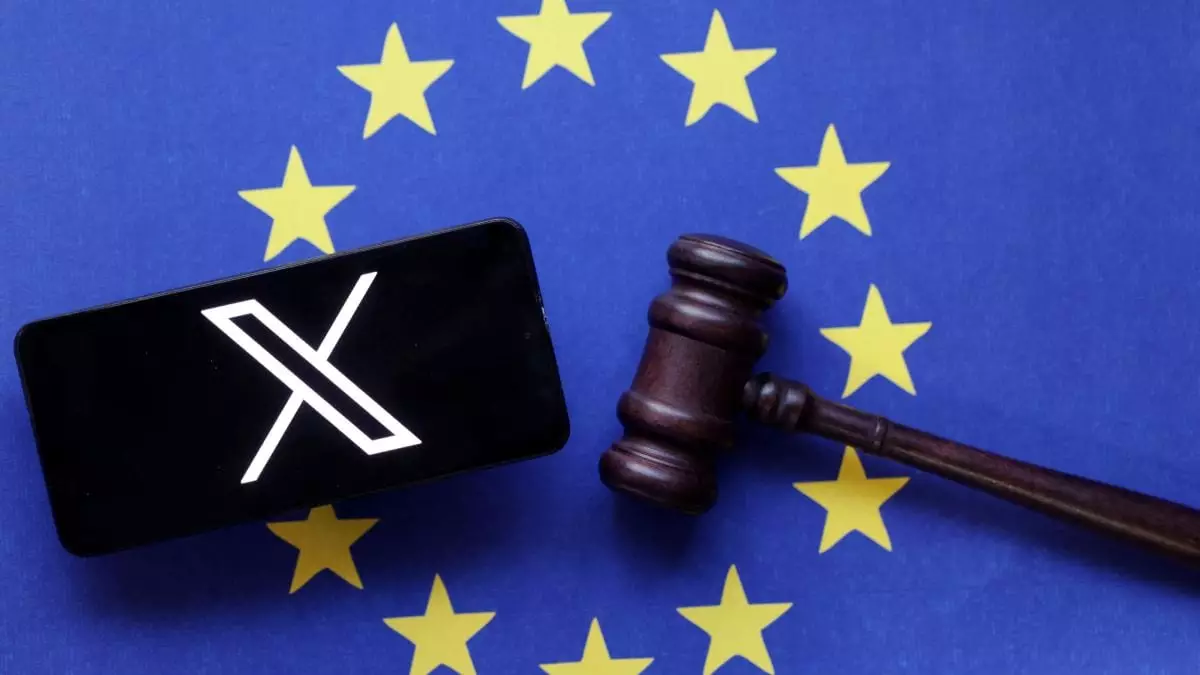The European Union (EU) is ramping up its investigation into X, the social network owned by Elon Musk, primarily to determine if it has breached content moderation regulations under the Digital Services Act (DSA). Henna Virkkunen, the Executive Vice President of the European Commission, recently disclosed that they are evaluating whether this inquiry should extend beyond its current scope. The DSA, which aims to ensure that digital platforms are held accountable for the content they host, has become a pivotal framework in the EU’s effort to regulate the vast landscape of social media and its impact on public discourse.
The formal proceedings against X initiated by the EU in December 2023 hinge on several allegations. Primarily, the platform is accused of failing to adequately tackle illegal content and misinformation, both critical issues in today’s digital ecosystem. The EU’s concerns aren’t limited to the spread of false information; they also include suspicions regarding the transparency of operations and design practices that may mislead users. This scrutiny intensified in light of Musk’s interactions with far-right political figures, notably leading up to Germany’s snap elections.
The investigation comes amid a backdrop of political tension, as Musk has emerged as an influential advisor to the president-elect of the United States, Donald Trump. His public endorsements of controversial candidates like Alice Weidel of the Alternative for Germany party have raised eyebrows. The EU is particularly interested in a recent live-streamed conversation between Musk and Weidel on X, which is purported to have been promoted algorithmically, potentially providing an unfair advantage to a political figure, thus violating the DSA.
The financial stakes are high for tech companies found to be non-compliant with the DSA regulations. Penalties can reach up to six percent of a company’s annual global revenue, a significant deterrent for corporations like X. These potential fines showcase the EU’s serious commitment to enforcing its digital regulations and highlight the broader strategy aimed at mitigating foreign interference in democratic processes. The recent annulment of Romania’s presidential election due to allegations of foreign interference only underscores the urgency of robust content moderation practices.
The EU’s authority draws mixed reactions from U.S. tech giants. Companies like Meta Platforms Inc., led by Mark Zuckerberg, have begun lobbying for more favorable treatment from the incoming U.S. administration. Zuckerberg’s comments about EU regulations seeming like a ‘tariff’ point to a growing frustration among these companies regarding what they consider overreach by European regulators. The implications of these tensions extend beyond regulatory frameworks; they may impact international relations, trade, and the broader geopolitical climate.
As this scrutiny unfolds, Musk has made it clear that he intends to contest any unfavorable decisions made by the EU regarding the DSA. His confrontational stance toward EU officials combined with the promise of legal challenges intensifies the anxiety around prospective regulatory frameworks. This standoff may set the stage for broader dialogues on how multinational digital platforms will be held accountable for content management, not only in Europe but globally.
As the EU continues its investigation into X, the intersection of technology, politics, and regulation becomes increasingly complex. The effects of this inquiry will likely ripple beyond Musk’s social media platform, influencing how digital giants operate in Europe and potentially altering the nature of transatlantic relations. With the tech industry pushing back against stringent regulations and the political stakes higher than ever, the battle over what constitutes fair and responsible platform governance is just beginning.
In a world where social media plays an integral role in shaping public opinion and political landscapes, the repercussions of this investigation hold vital lessons for digital governance, transparency, and the ongoing saga of Big Tech regulation in the global arena.


Leave a Reply